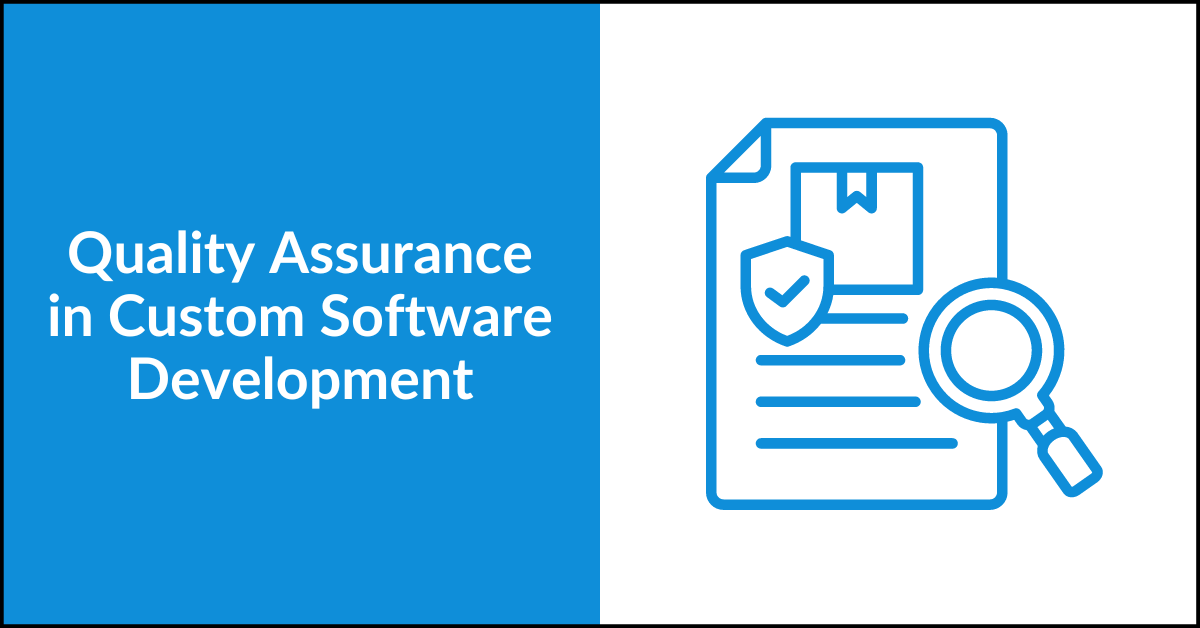
In custom software development, precision is paramount, and quality assurance (QA) ensures this precision is maintained.
Today, we’re diving into quality assurance and its importance to the success of your custom software project. Spoiler alert: if your development partner does not take QA seriously, you should start looking for a new partner.
What Is Quality Assurance in Custom Software Development?
Quality assurance means monitoring all software development processes, products, and methods to ensure compliance with various standards.
QA extends beyond automated and manual testing; it’s a proactive approach to identifying and addressing potential issues before they impact the end product.
Through comprehensive analysis and testing, QA ensures that every aspect of a software system meets the highest standards of functionality, reliability, and user satisfaction.
A thorough QA analysis addresses:
- Software design
- Requirements engineering
- Software integration
- Coding and code reviews
- Release management
- Source code control
- Testing
Why Quality Assurance Is Essential for Custom Software
Unlike off-the-shelf software, custom solutions are tailored to specific needs and requirements. This customization introduces inherent complexities, making thorough QA processes even more critical.
Here’s what QA brings to the table:
Look for a Partner Focused on Quality
When you outsource software development, you want a partner relentless about quality. Learn what to look for.
Ensuring Functionality
At the heart of QA lies the assurance of functionality. At Far Reach, we make sure that our QA processes rigorously test every aspect of the software, from individual components to integrated processes and systems, to ensure seamless operation under diverse conditions.
This meticulous approach minimizes the risk of functionality issues that could disrupt operations or hinder user experience.
Maintaining Reliability
Reliability is the cornerstone of trust. Our clients (and often their customers) rely on their software systems to perform consistently and reliably day in and day out.
Through exhaustive testing, including stress testing and performance testing, QA helps us identify and address potential vulnerabilities, ensuring that our solutions remain steadfast even under the most demanding circumstances.
Enhancing User Experience
Every software developer out there will tell you that user experience is the cornerstone of good software. That’s barely scratching the surface, though.
Here’s the thing: custom software development projects usually get input from a lot of departments—from the client’s company and from the development partner’s side. This means that it’s very easy to lose sight of the real users and their needs.
This is especially true for B2B custom software that is mainly used in-house. It’s very common to get lost among shiny features that you don’t really need and pretty interfaces that slow down your software.
This is where quality assurance comes into play. With continuous testing, we make sure that neither we nor our clients miss the forest for the trees. QA keeps us all on target toward our goals and on the needs of the end users.
Maximizing Return on Investment
For companies investing in custom software development, maximizing return on investment (ROI) is a top priority. The ROI of custom software development can take years to kick in.
This is why it’s crucial to minimize rework and ensure long-term reliability. We want to make sure that minimal maintenance is needed in the long run so our clients can enjoy fully functional software for their investment.
Enhancing Security
With data breaches growing more common every year, security in custom software should never be an afterthought. At Far Reach, we work with a lot of clients in some of the most sensitive industries, like medical fields and financial services.
Not only are they more exposed to cyber attacks but they are also more heavily regulated. Through quality assurance, we make sure that their software meets all the security standards at every stage of the development process.
Emerging Trends in QA
Quality assurance is evolving with the integration of AI and machine learning, which automate test case generation, defect identification, and predictive analysis, enhancing efficiency and accuracy. Additionally, the adoption of Continuous Integration and Continuous Deployment (CI/CD) pipelines supports agile development by ensuring automated, frequent, and reliable code updates. Emphasizing DevSecOps, these trends also integrate security into QA processes from the outset, ensuring robust and secure software development. By embracing these advancements, companies can significantly improve their QA practices and outcomes.
Wrapping Things Up
Quality assurance is not simply a nice-to-have. It’s part of the process that enables you to efficiently use your budget and make sure that your software is usable and starts generating ROI as quickly as possible.
More importantly, QA is not a one-time thing. In custom software, development is continuous. As your business grows and changes, your software should evolve along with you.
Whenever you add or remove a new feature, you need proper QA processes to make sure you don’t break other things or create security holes—both of these things can happen with ongoing development.
While it may sound cliché, “quality above everything else” is a mantra that has sustained our business for well over a decade.
Want to learn more about how QA can help you build better custom software?
Reach out, we’d love to chat with you about it.